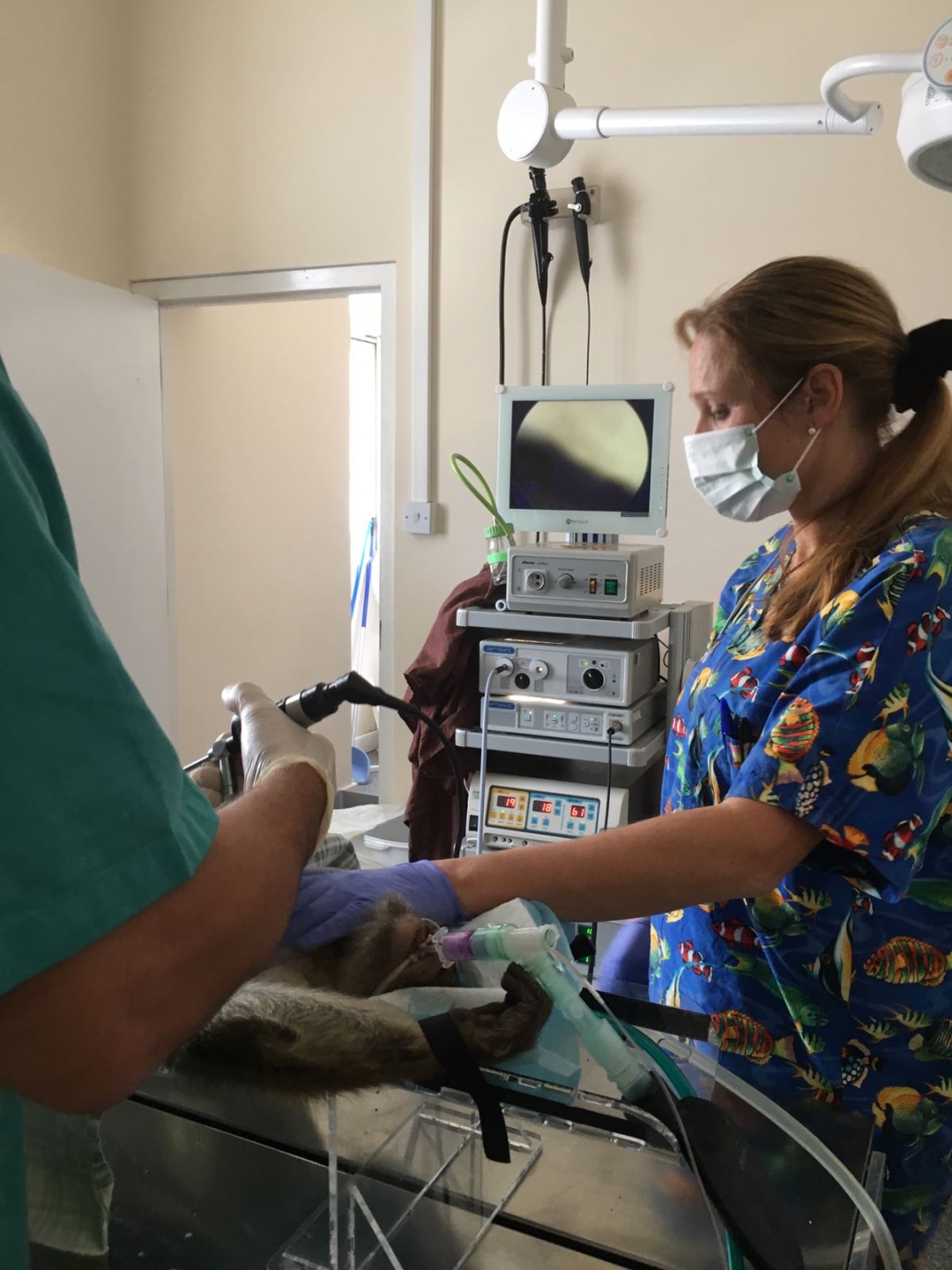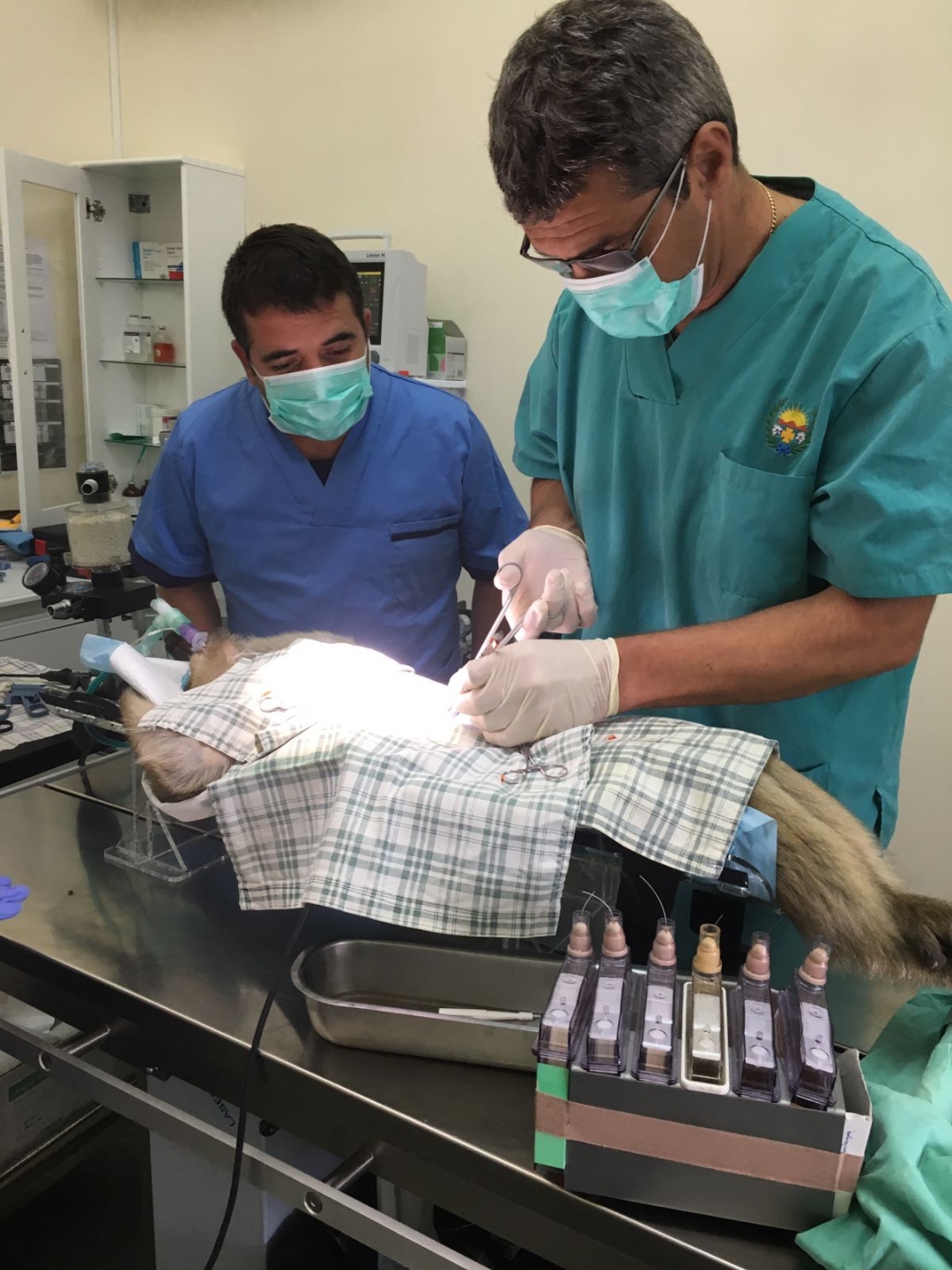Oct 18 - New Management Procedure For Barbary Macaque Population
 The management of the Barbary macaque population of Gibraltar continues to progress in ways that avoid the need for extensive culls, which used to be the case in the past.
The management of the Barbary macaque population of Gibraltar continues to progress in ways that avoid the need for extensive culls, which used to be the case in the past.
The control of the population, which is necessary in a small, densely populated area as is Gibraltar, is best carried out by other means. Contraception is one option favoured locally but while contraceptive implants have been used for several years now, they are of limited duration and sometimes not 100% effective.
As of this autumn, the Macaque Management Team, run by the Department of the Environment and Climate Change which includes the GONHS and the Gibraltar Veterinary Clinic, has introduced surgical contraception by way of laparoscopy. Veterinarian Mark Pizarro has so far treated fifteen female macaques from most of the groups found on the rock. The females are carefully selected by the team. They are always females who have already had one or more young in past years, so that they are not denied the opportunity of becoming mothers, which is important in macaque society. The numbers of females sterilized in this way is also limited, so that there will always be some females within every group which will still be able to bear young.
This method will have the long term effect of stopping population growth, while allowing social structures to remain and not threaten the continuation of the Gibraltar macaque population. As an additional management tool, this year has also seen the start of a programme to carry out genetic fingerprinting of the whole macaque population of Gibraltar.
The Government stresses that the correct management of our Barbary macaques is essential, and not just to reduce the nuisance they can cause in built-up areas. The species is endangered, as reflected in the recent uplisting of the species to Appendix I of the Convention on the Illegal Trade in Endangered Species of Wild Fauna and Flora. This uplisting, which was supported by the International Primate Protection League (IPPL) and over which Minister for the Environment & Climate Change Dr John Cortes was consulted in his personal capacity as a macaque conservation biologist, highlights the importance of the species, and of Gibraltar as a refuge for this primate, which is facing disappearance from its North African habitat.
Dr Cortes commented, “Having largely resolved the problem of macaques impacting on our built-up areas, which as I said at the time required a few years of patient work, we can now fine tune our management methods so that all of us can once again start to think of our monkeys, not as pests, but as an asset of which to be proud.”

{fcomment}
Latest News
- Giovanni Origo Budget Speech 2025 - GSD Shadow Minster for Youth, Tourism, the Environment and Transport
- Budget 2025 Speech by Minister for Industrial Relations, Civil Contingencies and Sport, Leslie Bruzon
- HM Customs Gibraltar Launches ASYCUDA Version 4.4 to Modernise Border Management
- Budget 2025 Speech by Minister for Equality, Employment, Culture and Tourism Christian Santos
- Declaration Of Enlistment By Royal Gibraltar Police Recruits
- Local Actors Travel To UK Drama Festival
- Bridge House Charitable Trust Welcomes Donations
- GSD Says Principal Auditor Report 2018/19 Should Now Emerge
- The Budget 2025 – Minister Gemma Arias-Vasquez's Address
- Ministry Of Equality Marks Successful End Of The Sixth Cycle Of The Women’s Mentorship Programme



